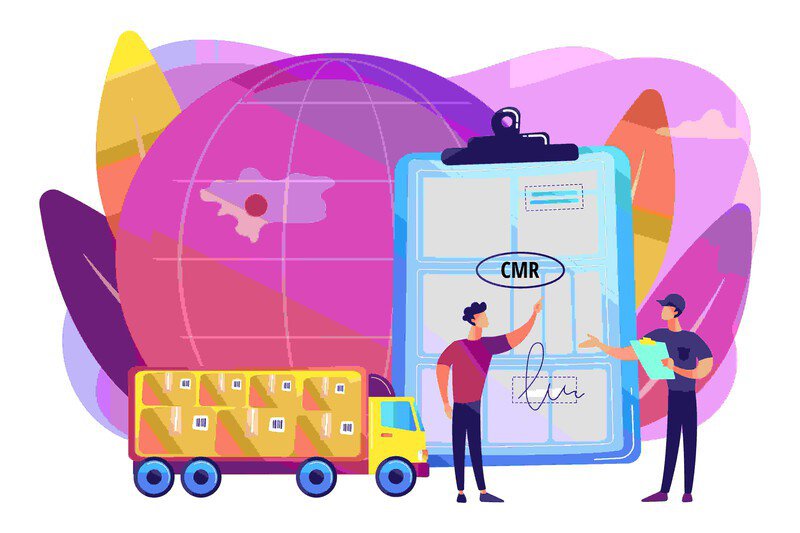
The flow of goods is essential in the huge and interconnected world of international trade. International trade relies heavily on freight shipping, especially ocean shipment, which makes cross-continental exchange of goods possible. For businesses that conduct business worldwide, it is essential to comprehend the foundations of freight shipping and the related procedures, such as freight management and sea shipping. This article examines the intricacies of freight shipping, providing insights into the dynamic realm of maritime shipments and elucidating crucial concepts.
Fundamentals Of Freight Shipping
The movement of goods, commodities, or cargo from one place to another is referred to as freight shipping. There are several ways that this can move, including by air, rail, road, and sea. But for the purposes of this conversation, we will be concentrating on the crucial area of ocean shipping.
Ocean Shipment: A Pillar Of International Trade
A vital component of global trade, sea shipping, or ocean shipment, is in charge of transporting most of the world's goods. Sea shipping needs to be dependable and efficient because of the sheer amount of cargo that is transported across the oceans on a daily basis. Large bodies of water must be crossed in order to move containers loaded with a variety of goods, from raw materials to completed goods.
Containers: The Building Blocks Of Sea Shipping
Containers are the basic building blocks of ocean freight; they are uniform metal boxes that are made to fit neatly onto trucks, trains, and ships. These containers are available in multiple sizes, the most popular being the 20- and 40-foot models. The shipping industry has undergone a revolution thanks to the standardization of containers, which has improved overall efficiency and streamlined the loading and unloading procedures.
Freight Management: Orchestrating The Symphony Of Shipping
Managing and streamlining the entire freight shipping process is the art of freight management. Coordinating shipments, choosing carriers, handling paperwork, and guaranteeing compliance with global laws are just a few of the interconnected tasks involved. In order to reduce costs, shorten transit times, and improve overall supply chain efficiency, businesses must practice effective freight management.
Key Components Of Freight Management
Route Planning
One of the most important aspects of freight management is figuring out the most economical and efficient sea shipping routes. Goods must be transported from their point of origin to their final destination as efficiently as possible, taking into account variables like distance, transit time, and available transportation options.
Carrier Selection
The success of freight shipping is influenced by the strategic choice of carriers. During the selection process, factors like carrier dependability, transit times, and cost are important considerations.
Documentation And Compliance
The complicated world of international trade necessitates close attention to documentation and compliance. Following these guidelines is crucial to avoiding delays and guaranteeing a smooth flow of goods, from customs forms to regulatory requirements.
Visibility And Tracking
In the field of freight management, real-time visibility into the whereabouts and status of shipments is becoming more and more essential. Businesses can keep an eye on their cargo during the entire sea shipping process with the help of technology-driven solutions like GPS tracking and sophisticated logistics platforms.
Challenges In Freight Shipping
Although freight shipping is a well-known and essential part of international trade, it is not without difficulties. Some of the common hurdles include:
Port Congestion
Congestion at busy ports frequently causes delays in the loading and unloading of cargo. Supply chains may be disrupted, raising expenses.
Regulatory Compliance
Professionalism is needed to navigate the complex web of international laws and customs processes. There may be penalties, hold-ups, and other issues if these rules are broken.
Weather-Related Disruptions
Storms and hurricanes are examples of unfavorable weather that can affect sea transportation schedules and jeopardize the safety of cargo.
Supply Chain Disruptions
Worldwide occurrences like the COVID-19 pandemic can affect the availability of sea shipping containers, transportation capacity, and general logistics operations, all of which can result in disruptions to the worldwide supply chain.
The Future Of Freight Shipping: Innovations And Trends
The freight shipping industry is seeing a wave of innovations and trends that are changing the way goods are transported across oceans as technology continues to advance. Notable advancements include the following:
Digitalization And Automation
Digital technologies like blockchain and AI are being integrated to streamline operations and improve the security and transparency of freight transactions.
Green Shipping Initiatives
The shipping industry is investigating environmentally friendly options, such as alternative fuels and energy-efficient technologies, to lessen its impact on the environment as sustainability becomes more and more important.
Predictive Analytics
Route optimization, potential disruption prediction, and overall supply chain efficiency are all made possible by utilizing data and predictive analytics.
Collaborative Platforms
Stakeholders in the freight shipping industry are becoming more connected and cooperative as a result of the growth of collaborative platforms and ecosystems. In order to build supply chains that are more responsive and flexible, shippers, carriers, and logistics companies must work together.
Conclusion
In conclusion, companies involved in international trade must comprehend the foundations of freight shipping. Global trade depends on ocean shipment because of its complex logistics and reliance on containers. From route planning to documentation and compliance, freight management is essential to the intricate musical composition of sea shipping.
The freight shipping industry is evolving, despite ongoing challenges, thanks to innovations and trends. The industry's adoption of automation, digitalization, and environmentally friendly methods is a sign of a changing and dynamic environment. A deep comprehension of freight shipping and its complexities will continue to be a critical factor in determining a company's ability to succeed in the global marketplace as companies navigate the seas of commerce.





 Get instant quote
and compare offers in real time
Get instant quote
and compare offers in real time